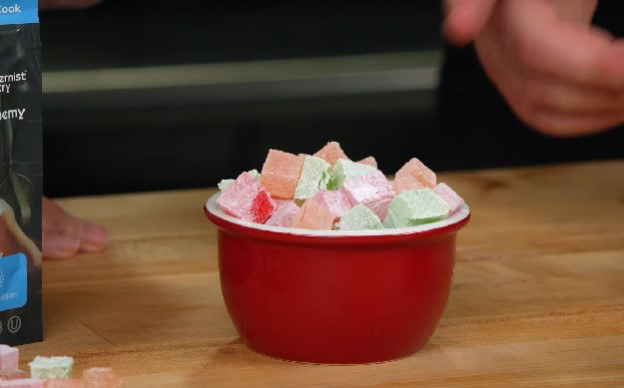Is Pectin Halal
Pectin is a common ingredient found in many foods, especially in jams, jellies, and various desserts. For those who follow a halal diet, understanding whether pectin is permissible (halal) or not is crucial. In this article, we will explore the origins of pectin, its uses, and its status in terms of halal dietary laws.
Introduction
Pectin, a natural carbohydrate found in the cell walls of fruits and vegetables, has become a staple in food production for its gelling and thickening properties. Whether you enjoy a sweet spread on your morning toast or delight in the chewy texture of certain candies, pectin plays a significant role. However, for Muslims who follow strict dietary guidelines, the question arises: Is pectin halal? This article delves into the details, providing a comprehensive look at pectin, its origins, uses, and its compliance with halal standards. By the end, you’ll have a clear understanding of this versatile ingredient and its place in a halal diet.
What is Pectin?
Pectin is a soluble fiber primarily found in the cell walls of fruits such as apples, quince, plums, gooseberries, and citrus fruits. It acts as a natural thickening agent, which is why it is widely used in making jams and jellies. The process of extracting pectin involves using the peels, pulp, and seeds of these fruits, making it a plant-based product.

Is Pectin Halal?
Pectin itself is considered halal because it is derived from plant-based sources. There are no animal products involved in the standard extraction and production processes of pectin. Therefore, it meets the halal criteria as defined by major Islamic dietary organizations and scholars.
Points Supporting Pectin’s Halal Status:
- Source: Pectin is extracted from fruits and vegetables, which are inherently halal.
- Production: Standard pectin production does not involve any pork products or other haram (forbidden) ingredients.
- Certification: Commercial pectin is available with halal certification, ensuring it meets the strict guidelines required for halal products.
Advantages of Pectin
Pectin offers several health benefits beyond its functional uses in food production:
- Digestive Health: As a soluble fiber, pectin aids in digestion and helps maintain a healthy gut.
- Heart Health: It can help lower bad cholesterol levels, contributing to overall heart health.
- Weight Management: Pectin increases the feeling of fullness, which can aid in weight management.
- Cancer Prevention: Some studies suggest that pectin may have protective effects against certain types of cancer.
Common Uses of Pectin
Pectin is incredibly versatile and is used in various food products:
- Jams and Jellies: Provides the gel-like consistency.
- Candies: Used as a gelling agent in gummy candies, offering a plant-based alternative to gelatin.
- Sauces and Dressings: Acts as a thickener to improve texture and consistency.
- Cosmetics: Sometimes used in the formulation of beauty products for its stabilizing properties.
Special Precautions and Warnings
While pectin is generally safe for consumption, there are a few considerations to keep in mind:
- Allergies: Some individuals may be allergic to pectin, especially if they have allergies to certain fruits.
- Additives: Ensure the pectin product does not contain non-halal additives such as alcohol, which can sometimes be used in the production process. Look for halal certification to guarantee compliance.
Frequently Asked Questions
Is pectin considered halal?
Yes, pectin is considered halal because it is a plant-based substance derived mainly from fruits such as apples and citrus fruits. Unlike gelatin, which is derived from animal sources and can be haram if it comes from non-halal animals, pectin is entirely plant-based and free from animal products.
What are the main uses of pectin in the food industry?
Pectin is widely used in the food industry as a gelling agent, thickener, and stabilizer. It is commonly found in products like jams, jellies, marmalades, fruit preserves, and some dairy products such as yogurt and dessert gels.
How does pectin compare to gelatin in terms of halal status?
Gelatin is often considered haram because it is derived from animal collagen, typically from pigs or non-halal slaughtered animals. Pectin, on the other hand, is plant-based and is generally accepted as halal.
Can pectin be used in pharmaceuticals?
Yes, pectin is used in pharmaceuticals, especially in the formulation of certain types of medicines to treat gastrointestinal disorders and manage cholesterol levels. Its plant-based origin ensures that it remains halal.
Is there a difference in texture and taste when using pectin instead of gelatin?
Yes, there can be a difference in texture and taste. Pectin creates a firmer, more jelly-like consistency compared to gelatin, which can be softer and more elastic. This difference is due to the distinct chemical properties of the two gelling agents.
What are the sources of pectin?
Pectin is primarily sourced from fruits, particularly apples and citrus fruits like oranges and lemons. It is extracted from the peel and pulp of these fruits.
How is pectin extracted?
Pectin is extracted through a process that involves treating the fruit peel or pulp with acid, followed by heating. The pectin is then precipitated using alcohol and dried into powder or liquid form.
Where can I buy halal-certified pectin?
Halal-certified pectin can be purchased from various suppliers and retailers that specialize in halal food products. It is advisable to look for pectin with a halal certification label to ensure it meets halal standards.
Can the method of extraction affect the halal status of pectin?
Yes, the method of extraction can influence the halal status of pectin. Using alcohol or non-halal chemicals in the extraction process can compromise its halal status. Ensuring the extraction process adheres to halal guidelines is crucial.
Are there other halal gelling agents besides pectin?
Yes, other halal gelling agents include agar-agar, carrageenan, and xanthan gum. These agents are also plant-based and suitable for halal diets.
Does pectin have any health benefits?
Yes, pectin has several health benefits. It is a source of dietary fiber, which can aid in digestion, lower cholesterol levels, and help manage blood sugar levels. Pectin is also used in certain medical formulations for these reasons.
Is there a difference between liquid and powdered pectin?
Yes, liquid pectin and powdered pectin differ in their application and the way they are added to recipes. Liquid pectin is often added to hot mixtures, while powdered pectin is typically mixed with sugar before being added to the mixture.
How can I ensure the pectin I use is halal?
To ensure the pectin you use is halal, check for a halal certification label on the packaging. You can also contact the manufacturer directly to inquire about their halal certification and production processes.
What types of foods commonly contain pectin?
Foods that commonly contain pectin include jams, jellies, fruit preserves, certain types of candy, and some dairy products like yogurt. It is also used in some low-fat and reduced-sugar products to provide texture and stability.
Can pectin be used in vegan recipes?
Yes, pectin is suitable for vegan recipes as it is entirely plant-based. It can be used as a substitute for gelatin in vegan desserts and other recipes requiring a gelling agent.
What are the storage requirements for pectin?
Pectin should be stored in a cool, dry place, away from moisture and direct sunlight. Proper storage helps maintain its gelling properties and extends its shelf life.
Conclusion
In summary, pectin is a halal ingredient as it is derived from plant-based sources and does not involve any animal products in its standard production process. However, it is essential to ensure that the pectin product you use is halal-certified to avoid any potential non-halal additives. Pectin’s versatility and health benefits make it a valuable addition to a halal diet, allowing for a variety of culinary creations without compromising dietary restrictions.
Read also: Is Enzymes Halal





